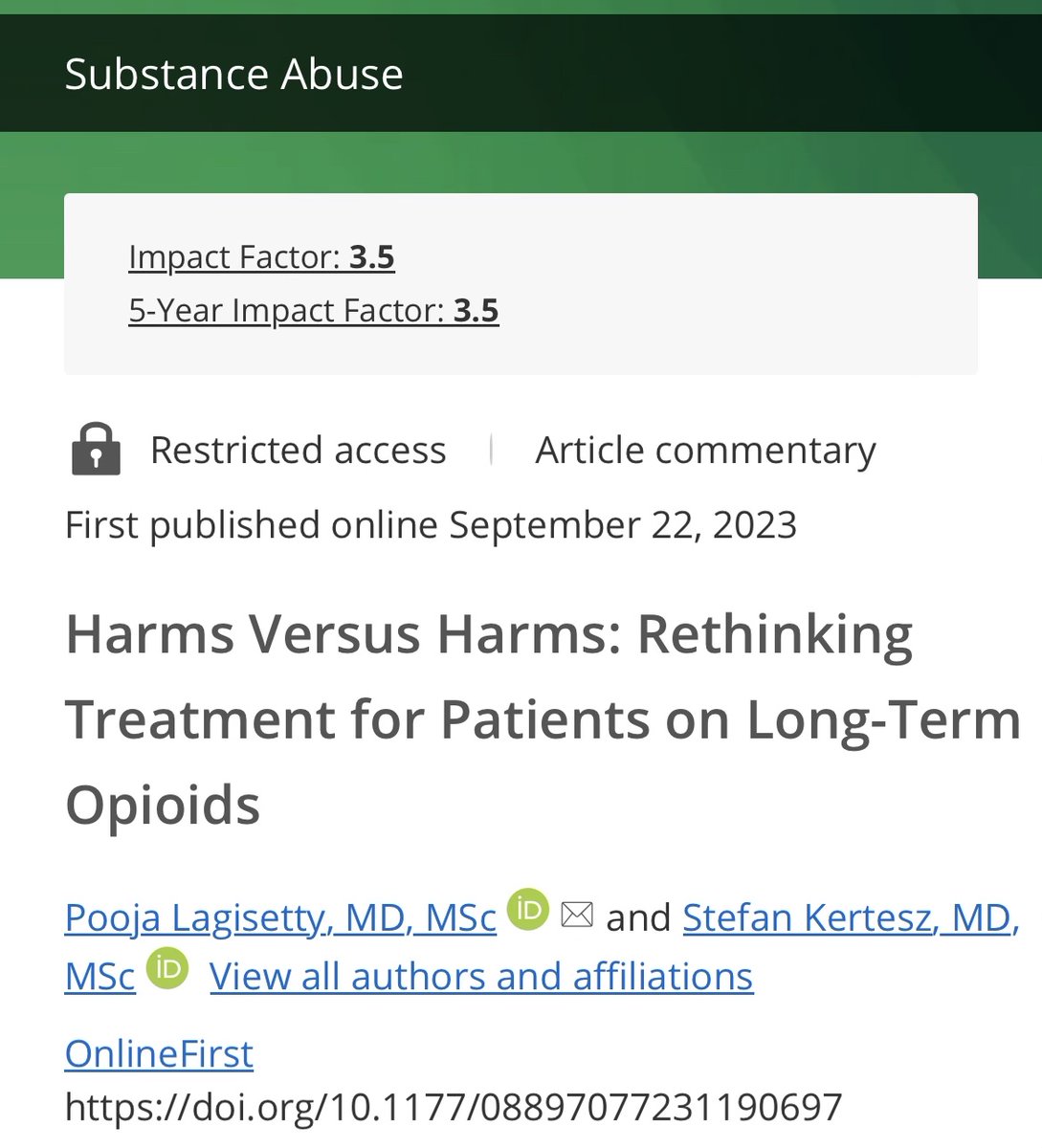1/There is a new “Lancet Commission” report on the North American opioid crisis.
It is led by @KeithNHumphreys and includes @DrSeanMackey & @ChelseaLShover
I will share a few shots of some messages & recs as it is behind paywall
Selectivity is unavoidable. It is 50 pages!
It is led by @KeithNHumphreys and includes @DrSeanMackey & @ChelseaLShover
I will share a few shots of some messages & recs as it is behind paywall
Selectivity is unavoidable. It is 50 pages!
3/The Commission does see the opioid overdose/poisoning crisis as a result of a multi system regulatory failure 

4/The commission does recommend opioid agonist treatment but offers caveats in maximum or unmanaged supply 

6/The Commission offers support for PDMPs.
Ed note: I use one. It can be helpful. I am concerned that these mandatory systems are not open to appeal or correction by patients and that my patients are adversely and incorrectly labeled by the PDMP due to receiving team based care
Ed note: I use one. It can be helpful. I am concerned that these mandatory systems are not open to appeal or correction by patients and that my patients are adversely and incorrectly labeled by the PDMP due to receiving team based care

9/The Commission makes a strong case for financing and expanding accessible, high quality, non-stigmatizing health and social care services for people with opioid use disorder 

10/The Commission gives attention to criminal justice system involvement as a situation where there should be a maximizing of benefit and minimizing of adverse effects
. (I refuse to put that “s” in for the “z” cause I’m tweeting in ‘Merica , f- yeah!)
. (I refuse to put that “s” in for the “z” cause I’m tweeting in ‘Merica , f- yeah!)

11/There are hundreds of citations and far more I have not summarized.
Full panel of recommendations here.
If a person lacking Lancet access reaches out to me personally I will share the article under fair use / fin
Full panel of recommendations here.
If a person lacking Lancet access reaches out to me personally I will share the article under fair use / fin

• • •
Missing some Tweet in this thread? You can try to
force a refresh





















